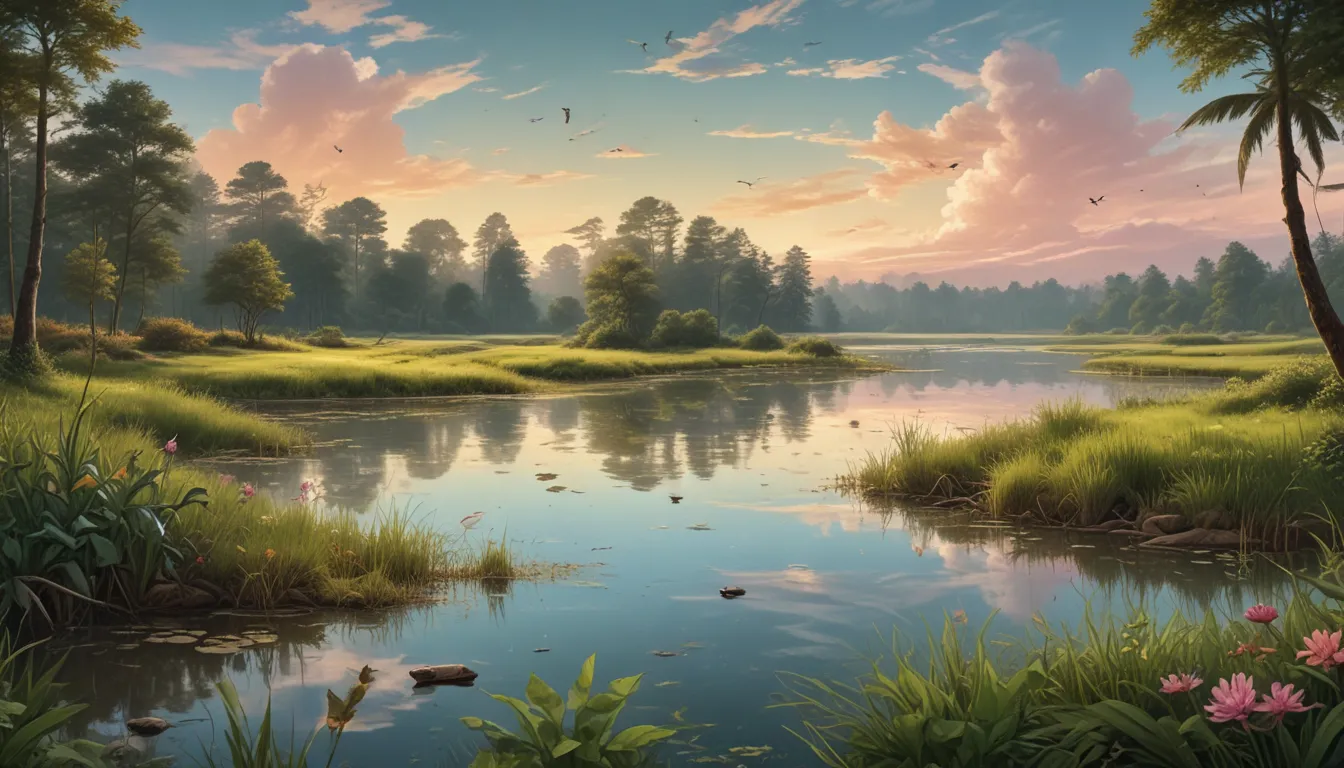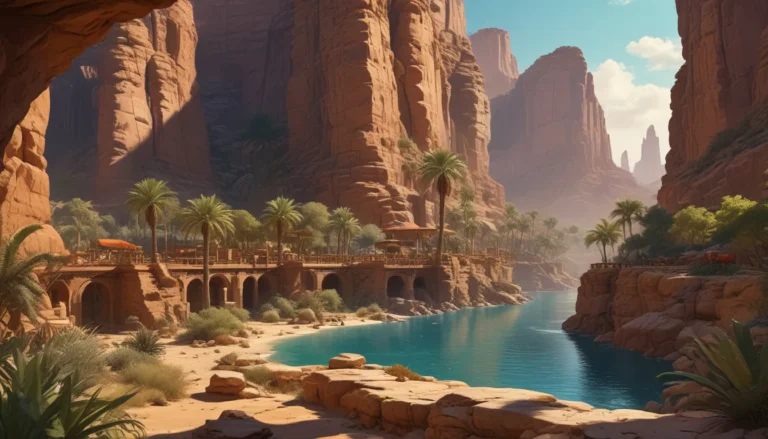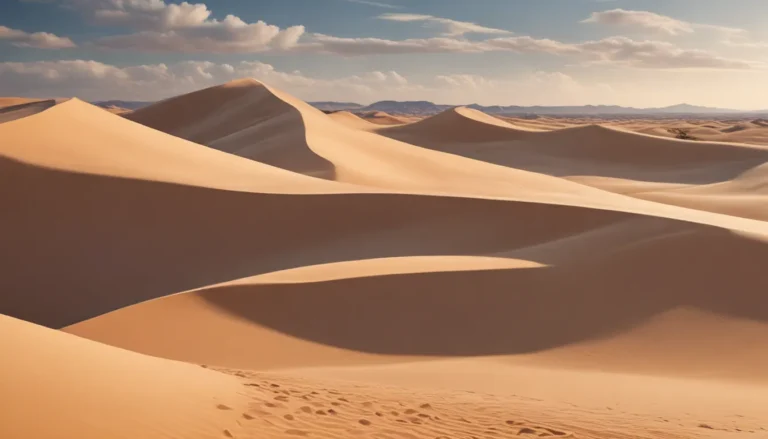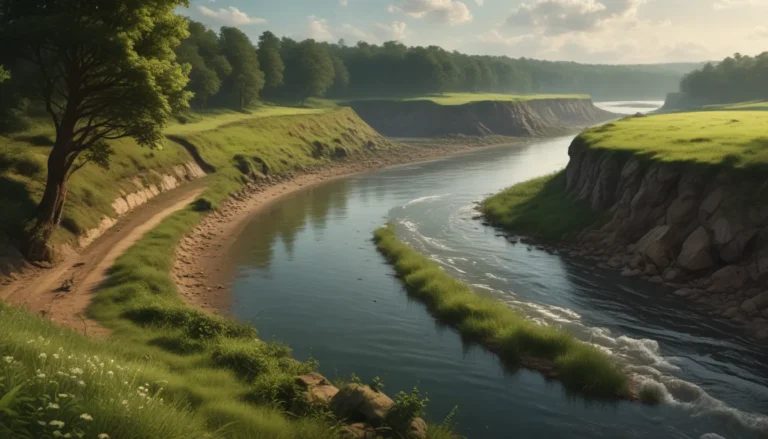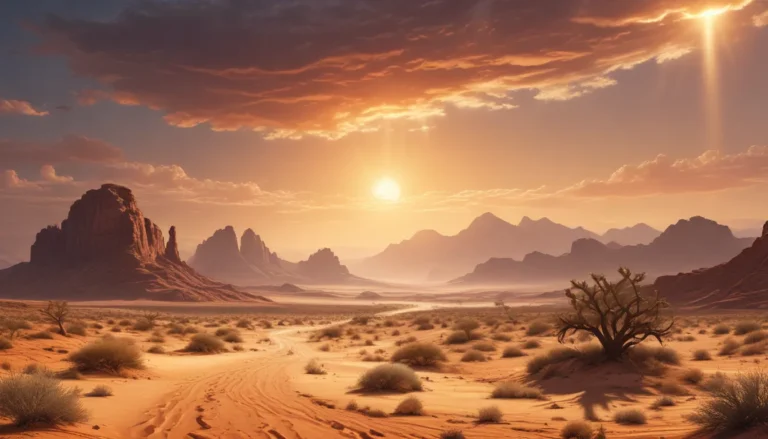A Note About Images: The images used in our articles are for illustration purposes only and may not exactly match the content. They are meant to engage readers, but the text should be relied upon for accurate information.
Wetlands are more than just muddy expanses; they are crucial ecosystems that play a vital role in sustaining life on our planet. These transitional areas between land and water are teeming with biodiversity and offer a myriad of benefits to both wildlife and humans. In this article, we will take a closer look at the fascinating world of wetlands and uncover nine captivating facts that showcase their unique characteristics and importance.
The Vital Role of Wetlands
Wetlands are essential ecosystems that provide numerous benefits to the environment and human populations. Acting as natural filters, they cleanse water by removing pollutants and maintaining water quality. Additionally, wetlands serve as habitats for a diverse array of plant and animal species, contributing to biodiversity and ecological balance. Their ability to absorb excess rainwater helps control flooding, making them crucial for the health and sustainability of our planet.
Global Diversity of Wetlands
Wetlands come in various forms and can be found in almost every corner of the world. From marshes and swamps to bogs and mangroves, these ecosystems cover diverse landscapes and climates. Iconic wetlands such as the Florida Everglades, the Okavango Delta, and the Sundarbans showcase the rich tapestry of global biodiversity supported by these unique environments.
A Haven for Wildlife
Wetlands are dynamic environments that support a wide range of wildlife, including birds, mammals, reptiles, and amphibians. They are especially known for their abundant bird populations, with many migratory species relying on wetlands as stopover points during their journeys. Additionally, wetlands provide essential breeding grounds for fish and amphibians, contributing to the ecological balance of surrounding areas.
The Carbon Storage Power of Peatlands
Peatlands, a type of wetland characterized by peat accumulation, play a crucial role in storing carbon dioxide. Acting as carbon sinks, they trap and sequester large amounts of this greenhouse gas, helping regulate the global climate. Protecting and restoring peatlands is vital in mitigating the impacts of climate change and preserving the delicate balance of our planet.
Economic Benefits of Wetlands
In addition to their environmental importance, wetlands offer various economic benefits to local communities. They support fishing, farming, and tourism activities, contributing to livelihoods and economic development. Wetlands are popular destinations for birdwatching, canoeing, and nature enthusiasts, further enhancing their value to society.
Threats to Wetlands
Sadly, many wetlands face significant threats from human activities such as pollution, urban development, and agriculture. Climate change exacerbates these challenges, posing risks to the health and survival of wetlands worldwide. The loss of wetlands not only disrupts ecosystems but also diminishes the essential services they provide, such as water purification and flood control.
Climate Change Mitigation
Wetlands play a vital role in mitigating climate change through natural processes. By absorbing and storing carbon dioxide, they help reduce greenhouse gas emissions and regulate the global climate. Wetlands also act as buffers against extreme weather events, mitigating floods and protecting vulnerable areas.
Cultural Importance of Wetlands
Wetlands hold cultural significance for many indigenous and local communities around the world. These communities rely on wetlands for resources such as food, freshwater, and materials for traditional crafts. By preserving wetlands, we not only protect biodiversity but also respect the cultural heritage and rights of these communities.
Water Management Benefits
One of the essential functions of wetlands is water management. Acting as natural sponges, they absorb excess rainwater, reducing flood risks downstream. Wetlands also filter pollutants and improve water quality, ensuring a sustainable and reliable water supply for ecosystems and human populations.
Conclusion: Embracing the Magic of Wetlands
Wetlands are not just ecosystems; they are interconnected marvels that sustain life and offer a multitude of benefits to our planet. From their role in carbon storage and flood control to their cultural significance and economic benefits, wetlands are indispensable to both wildlife and human communities. By recognizing the importance of wetlands and supporting conservation efforts, we can ensure the preservation of these remarkable habitats for future generations to enjoy.
FAQs: Exploring Wetland Facts
- What is a wetland?
- A wetland is an area of land saturated with water, supporting unique plant and animal species.
- Why are wetlands important?
- Wetlands provide crucial ecosystem services such as water purification, flood control, and biodiversity support.
- Where can wetlands be found?
- Wetlands exist worldwide, ranging from coastal areas to inland regions, and can be freshwater or saltwater environments.
- Can wetlands be restored?
- Yes, wetlands can be restored through various techniques to revive their ecological functions and habitats.
- Are wetlands protected?
- Many wetlands are protected under national and international laws to preserve their environmental significance and ecosystem services.
Delve into the enchanting world of wetlands and discover the wonders they hold. By valuing and protecting these invaluable ecosystems, we can ensure a sustainable future for our planet and all its inhabitants. Let’s continue to appreciate and conserve the intricate beauty and functionality of wetlands for generations to come.
